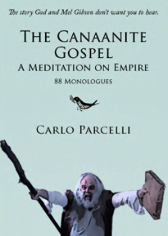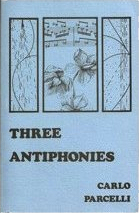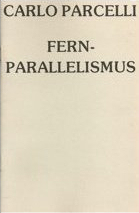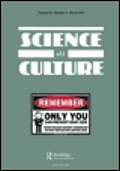|
"The
story God & Mel Gibson don't want you to hear!!"
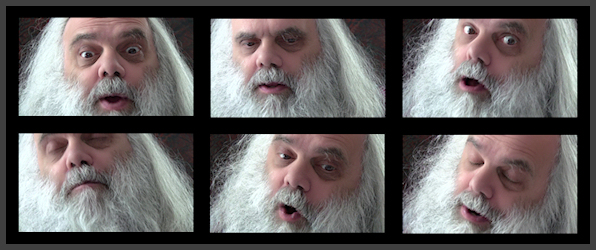
at once
historical, profane, blasphemous, comedic and vulgar
"In the classical argots of
Petronius, Rabelais, Chaucer,
Shakespeare, Lenny Bruce,
Guy Ritchie, James Joyce,
David Jones"
Selected
Publications
(for online publications see:
www.flashpointmag.com)
The
Canaanite Gospel
Reviews & Comments
Wayne
Pounds :
The Canaanite Gospel: A Mediation on Empire is a
keyboard calliope played by a Lenny Bruce on
stinkweed who has absorbed by osmosis a library of
first-century texts. He takes on the Jesus
seminarians, Liberal and Conservative, routing
them and all other wannabe rationalizers of
scripture by doing impersonations of a legion of
characters who were part of the events that took
place in Judea during Holy Week of the year 33
BCE. The Canaanite Gospel records eyewitness
depositions, which together make up this Gospel.
There is a human disorder here, but the plot
carries the reader through it, and thematically
the focus is clarity incarnate: 88 monologues on
empire, religion, and political struggle, set
during the Roman occupation of Judea and Perea
during Holy Week on the year that Jesus of
Nazareth was crucified, traditionally 33CE. The
lessons for the American Empire of today are too
apparent to require statement here. As Parcelli
notes in his preface, one of the great ironies of
history is that Christianity, with "its idealized
bromide of universal peace and love," should allow
itself to be co-opted by the declining Roman
Empire to emerge as its "theocratic spawn."
The book's primary literary inspiration may be
David Jones, who after WWI wrote long poems like
"Anathemata" implicitly comparing the Roman and
British empires. Present also is the ghost of Ezra
Pound, who made a comparable juxtaposition of eras
in "Homage to Sextus Propertius." Maybe Pound is
the more appropriate citation, for his
"Propertius" showed poets the use of a persona to
double the poetic voice--that is, make it speak
more than one idiolect at a time.
The power of these monologue meditations comes
from a bravura use of language reminiscent of
Joyce or Burgess. The 88 monologues are a calliope
of argots, "profane, blasphemous, obscene and
peppered with ethnic slurs." In his preface,
Parcelli warns the uninitiated reader (this book
is not for children) and justifies his practice by
citing David Jones. The latter, recalling the
importance of profanity among the troops, speaks
of a discourse so conditioned by the use of
profanity as to seem liturgical, giving "a kind of
significance, and even at moments a dignity, to
our speech." Over the variety of argots and
polyglot slang is spread the sauce of East End
Cockney, hot enough to spice up any literary dish.
The poems should be thought of as performances.
That is what the figure of Lenny Bruce and the
word "monologues" are telling us. To witness the
author in performance, look him up on Youtube.
There you will find him in the persona he adopts
for this book, that of Simon Kananaios (Simon the
Canaanite), aka Simon the Zealot, collector of
depositions.
Ours is a glorious age for Biblical scholarship.
To the known 22 gospels, a 23rd has been added.
_____________
Jennifer J. :
Carlo Parcelli's Caananite
Gospel is a work of astonishing wit and
temerity that infuses the Synoptic Gospels with
vitality, relevance,
and urgency by breaking open the complacent vanity
which has
enrobed the gospels in recent memory. Rather
than being a mere
work of transgression, his iconoclastic monologues
breathe new life
into the horrendous scene of Roman Empire and
bureaucratic disdain
that crucified the most creative soul to spring from
that desert ground.
The interpretation of the
actors at the scene of the crucifixion is
entirely original. For those who can get beyond the
twinge of
discomfort caused by Parcelli's way of infusing a raw
humanity into
the gospels in order to resurrect the story with new
power and
relevance, there is a lot to be gained by thrusting
oneself onto the
scene and being surrounded by the lives Parcelli
creates from his
imagination, pouring out vivid dialect and rampant
irony.
_____________
Jack Foley
Senior Editor / FlashPoint Journal of
the Arts & Politics
The Gospels of
Matthew, Mark, Luke, and John report two
stories of what
happened after Jesus of Nazareth
died. One story went on to conquer
the Western World. The Canaanite
Gospel proclaims the rejected story--
in a multitude of voices low and high,
imperial and insurrectionary--Roman,
Galilean, Jebusite, Greek--familiar
names among them, like Lazarus,
Herod Antipas, Mary Magdala,
Barabbas--but telling most unfamiliar
tales.
Ferocious, hilarious, deeply and
richly imagined, The Canaanite
Gospel projects a
world as new and undiscovered as
it is also disturbingly
recognizable.
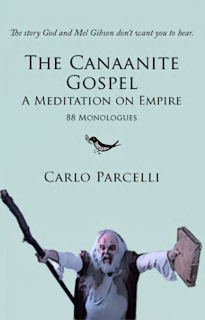
order through
Amazon
or
Country Valley Press |
"So's the boys at the pub ask,
if he's resurrect, where the fuck is he?"
-Lazarus
Poet
Vaudevillian
Carlo Parcelli
(performances or readings available)
The Canaanite Gospel
A Meditation on Empire
88 Monologues
Country Valley Press / FlashPoint
ISBN 978-0-9820196-2-7
$11.95
|
What actually transpired Easter Week/Passover 33 A.D.?
The Resurrection of Jesus of Nazareth was a Hoax!
Culled
from First Century Texts and drawn from dozens
of biblical and secular sources, these monologues tell
a revisionist tale of what transpired in Judea,
Easter Week/Passover 33 AD and beyond during the
reign of the Roman Emperor Tiberius.
In the classical argots of Petronius, Rabelais,
Chaucer, Shakespeare, Lenny Bruce, Guy Ritchie,
James Joyce, David Jones, Cockney and the world's
myriad cryptolects, The Canaanite Gospel strips
bare the New Testament canard of the Resurrection
of Yeshu of Nazareth and pokes a
stick in the eye of the Synoptic Gospels.
The Canaanite Gospel ©
2010
For
more info or to schedule a performance
contact: Carlo Parcelli at
301-927-8323
email: alphavillebooks@verizon.net
Mr. Parcelli is a founding editor of:
FlashPoint: A Literary Journal of the Arts and
Politics
www.flashpointmag.com
|

